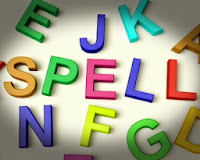Does a Writer Need an Editor?
Do You Need an Editor?
The short answer to that question?
Yes!
A more appropriate question to ask would be: Why do I need an editor?
If you spend enough time reading posts from agents and publishers, you'll discover they prefer to receive work that's been edited by someone besides you.
Why Do You Need an Editor?
You know what you've written. Your story inhabits your soul. When you try to edit it, you will read into it what you meant...whether or not it really says what you meant.
I give the same advice to technical and business writers, by the way.
Editing focuses on more than grammar and typos. The internet abounds with posts about the kinds of editors you might hire, but here's a quick breakdown:
Content or Developmental Editor
This editor explores plot and flow, character development, setting, point of view, etc. Basically, this type of editing asks if the story works as written. It's not meant to find typos or grammar issues, although the editor might comment on those kinds of problems if they're glaring. This edit focuses on making sure the story works.Line Editor
This kind of editing focuses on your manuscript line by line. Although a line editor might note some of the issues a content editor might mention, the focus is not story, it's about the words: excess words, repetition, awkward sentences, etc. This edit does not focus on typos and grammar, either, although major grammatical problems might be mentioned.Copy Editor
A copy editor focuses on the rules of writing. This person should be familiar with the style guide(AP, Chicago, etc.) appropriate to the type of writing you're doing. They check grammar, punctuation, spelling, facts, etc. They, also, look for inconsistencies in your writing: you hyphenated a word here but didn't hyphenate it in a different place.Proofreader
This should be your final edit, although some people lump it in with Copy Editing. A proofreader catches errors in the writing: misspelled words, missing words, and punctuation issues. In addition, this editor looks at any problems with formatting for print layout or ebooks. Hire this editor last, not first. If you don't take care of your content or line edit issues first, you'll end up paying for proofreading again later.Odds are you won't find one editor who offers all of these services. I prefer to do Content and Line editing, although I will comment on and/or fix glaring grammatical issues if I have the time.
Also, be aware that many editors will request a sample of your manuscript before accepting you as a client. I do this to ensure two things:
1. I'm quoting an appropriate price for the level of work
2. Your work is ready for an editor
Often, I'll receive a sample and make some suggestions on problems they should fix before I accept the editing job. I don't want my clients spending money on things they can fix first.
A good editor will do that because they want your business and your referrals.




Comments
Comes now, that question where you poked me in a place I don’t like to be poked. You made me think about the question of editing in a general context. What about the younger person who writes—the one who is always in a state of mafunzalo. This is the person who can only devote an hour or two each day to writing, maybe a little more on the weekends. It’s a struggle for that individual to keep body, soul, and family together. The money just ain’t there. How about the older individual who is on a fixed-income? Now, the time is available. Now, the stories can be written. Perhaps not in a state of poverty, but the cash for hiring an editor is not available.
Are these writers to be doomed to some slush pile somewhere?
As for me, I’m a realist, if nothing else. To me, the joy I find in practicing the hard work required to turn out something provides more relief from the constant physical pain I endure than the opiates I’m obliged to use. Still, there is that small spark of hope that something I write will find its way out, and someone will read it. I can only hope it might be entertaining or give some cause for thought. After all, there’s nothing worse than being out of hope.
“So we beat on, boats against the current,”---F.S.F.
Not everyone who rises to the top of the slush pile submits work that's been edited. It can happen; however, having your work edited first gives you a step up in the process.
Still, there's no guarantee. Publishing is subjective. Agents and publishers might reject a manuscript based on numerous issues. If you have a fantastic story and the ability to weave it in a way that makes people dig in, you might find an agent who will overlook the issues an editor identifies...assuming they take the time to wade through those same issues.
By the way, thanks for adding to my vocabulary! I had to look up mafunzalo!